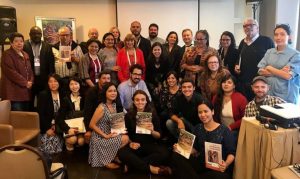Civil society has placed high hopes on South-South Cooperation being founded on solidarity against colonialism and the principles of respect for sovereignty and territorial integrity, equality of all nations, abstention from intervention or interference in the internal affairs of another country, respect for the right of each nation to defend itself, and the promotion of mutual interest and cooperation, among others.
Despite its highly progressive roots and principles, SSC has remained a government-to-government affair with increasing evidence of going astray. Geopolitical interests by powerful countries prevail alongside poverty, lack of accountability, lack of space for meaningful peoples’ participation, and various issues of human rights.
SSC has to live up to its principles. Globally, the need to achieve the SDGs calls for citizens of the world and more specifically those in the south to be put at the center of development agenda – from design, planning, implementation, monitoring and evaluation; that is, a people-centered approach. Only then can SSC truly constitute a partnership based on solidarity for those left furthest behind and realize its full development potential.
CSOs in this side event engaged governments, inter-governmental bodies and other development actors in a discussion to foster understanding, appreciation, promotion and application of a people-centered approach to South-South Cooperation. In particular, it sought to (1) promote a people-centered approach to monitoring and evaluating SSDC; and (2) gather insights and gain champions and allies from state actors.
DOWNLOAD BAPA Side Event Narrative Report

